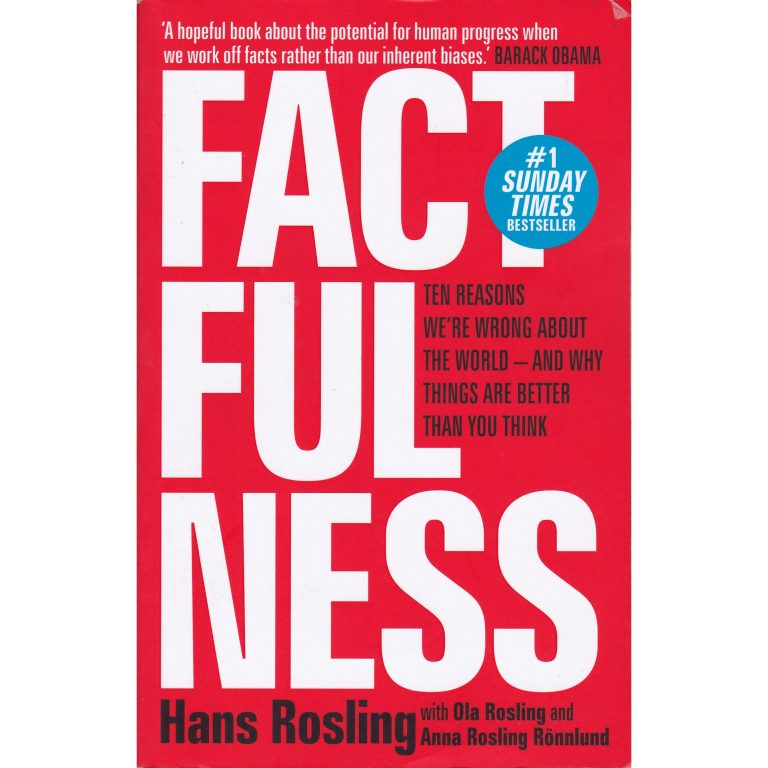You’re a well-educated person, living in a rich and prosperous land. How come then that your worldview is so wrong? Let Hans Rosling set you straight with clarifying facts.
Factfulness is a remarkable book because of its wide scope and the consistency of its analyses of our misunderstanding of what’s going on in the world. ‘A brilliant book that everyone should read,’ wrote New Scientist. I couldn’t agree more and I’ll explain why.
The book covers all the major topics like economic development, public health, population growth, education and climate change. It starts out with a short questionnaire. Rosling has presented the book to government leaders, the business elite and ordinary folks like you and me all over the world. Astonishingly, 80% of the people score worse than chimps that would fill in answers at random. The world really fares a lot better than most people think.
So, Rosling asks, what makes people so ignorant? An outdated worldview and biased news reporting are the main causes.
For example, people still talk about ‘the west & the rest’ as the developed world versus developing countries. Rosling nuances this view by introducing four levels of economic development instead of two. Between level 1 (poverty with a daily income of USD 2/day or less) and level 4 (rich with a daily income of USD 32/day or more) are the intermediate levels 2 and 3. And guess what: 5 billion people are on these levels, in between the 1 billion in poverty and the 1 billion rich. People instinctively think in opposite extremes, neglecting the ‘gap’ in between where the real development takes place.
The gap is the first of 10 instincts that make up the chapters of the book. Instincts are intuitive ways of thinking that originated during the evolution of our species. Fear, generalisation or blaming may have been useful in the past to quickly form judgements as preparation for action.
We should become aware of our innate mental pitfalls
But in our complex world, instincts obscure rational judgement, argues Rosling. Instead, we should become aware of our innate mental pitfalls, and use data to provide context and reveal trends.
Let’s take our fear of terrorism as an example. Of the 159,000 deaths by terrorism between 2007-2016, only 1% fell in rich countries. ‘In fact,’ writes Rosling, ‘it is hard to think of a cause of death that kills fewer people in countries at Level 4 than terrorism.’ Now compare that to the number of terrorism-related news items. ‘In the US, the risk that your loved one will be killed by a drunk driver is nearly 50 times higher than the risk that he or she will be killed by a terrorist.’
Hans Rosling started out as a medical doctor, treating epidemics in poor countries. When he discovered that public health was the product of society and economics, he became a researcher and later a Professor of International Health at the Karolinska Institute in Sweden. When he fell ill in 2017, he started to write this book, together with his son and daughter-in-law. His testament to the world is a monument of rationality and hopeful thinking. Factfulness helps readers to put panicky daily news into context and focus on the world’s five real issues: poverty, pandemics, financial collapse, world war III and climate change.
 Book cover
Book coverHans Rosling et. al, Factfulness – ten reasons we’re wrong about the world – and why things are better than you think, Hodder & Stoughton 2019, 352 pages, about EUR 11.
The same team also maintains two remarkable websites:
Do you have a question or comment about this article?
j.w.wassink@tudelft.nl

![[Review] Factfulness](https://delta.tudelft.nl/wp-content/uploads/2023/12/Gosling-graph2.jpg)
Comments are closed.